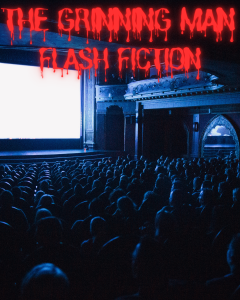Storytelling Saturday: The Wife of His Youth
6 min read
By Charles W. Chesnutt (1898)
(Public Domain)
What does it mean to honor the past when you’re finally accepted by the present? In this powerful short story, Charles W. Chesnutt — one of the earliest African American fiction writers published in major American magazines — introduces us to Mr. Ryder, a well-to-do man of culture and standing in the Blue Vein Society. On the eve of announcing his engagement to a younger woman of mixed race, an unexpected visitor from his past threatens everything. The Wife of His Youth is a timeless meditation on identity, dignity, and the cost of forgetting where you came from.
Mr. Ryder was going to give a ball. There were several reasons why this was an opportune time for such an event. Mr. Ryder might aptly be called the dean of the Blue Veins. The original Blue Veins were a little society of colored persons organized in a Northern city shortly after the war. Its purpose was to establish and maintain correct social standards among a people whose social condition presented almost unlimited room for improvement. By accident, combined perhaps with some natural affinity, the society consisted of individuals who were, generally speaking, more white than black. Some envious outsider made the suggestion that no one was eligible for membership who was not white enough to show blue veins. The suggestion was readily adopted by those who were not of the favored few, and since that time the society had been known as the “Blue Vein Society.”
While there were no such tests of eligibility, it is true that the Blue Veins had their own ideas as to what constituted good society, and admitted no one who was not, in their estimation, worthy of the honor. Though the society had its critics, it numbered among its members persons who stood well in the community, and the majority of its members were people of culture and refinement.
Mr. Ryder was himself a man of culture and refinement. His residence was handsomely furnished, containing, among other things, a good library, especially rich in books of poetry. Poetry, however, was not his sole reading; he had a large number of prose works, ranging from history to travel and fiction. He owned a musical box that played the airs of a half a hundred operas. He took pride in knowing the music of the most noted composers, and could whistle with ease and precision several of their best-known melodies. He was a member of several literary and musical societies, and was looked up to by his friends and associates as a person of superior judgment.
Mr. Ryder was a conservative. Though he had not been to the South for many years, he still retained a vivid and painful recollection of its social conditions. He had been born free and had never known the demoralizing influence of slavery, and he looked with contempt upon such of his brethren as had not been able to rise above the condition of servitude. He had come to Groveland many years before, a young man, and after a long period of patient labor had risen to the position of stationary clerk in the office of a great railroad company. He was a bachelor, and had made no secret of his intention to select a life partner some time in the near future—someone of suitable age and social standing. There were rumors that he had a particular person in mind, but that he had not yet made up his mind.
The ball which he was about to give was expected to afford him an opportunity to present this person to the Blue Vein Society. It was to be the most elaborate affair of the season. The date had been chosen to suit the convenience of the person in question, and none but the elite were to be invited. It was to take place in his own house, and he had been very busy preparing for the event.
On the afternoon of the day on which the ball was to take place, Mr. Ryder sat on his front porch, in a wicker rocking chair, inspecting the lists of guests and the arrangements for the evening. He was in a happy frame of mind, and looked forward with pleasure to the hour when he would meet the society assembled to do him honor. While thus engaged, he noticed an old woman of a somewhat rustic appearance approach the steps. She looked tired and travel-stained.
“Good afternoon, suh,” she said.
“Good afternoon, madam,” he replied courteously.
“Is dis here where Mr. Ryder lives, suh?” she asked.
“Yes, madam, I am Mr. Ryder.”
“I’m lookin’ for my husband, suh. I heerd you wuz here, and I come to see you.”
“I am afraid you are mistaken,” said Mr. Ryder. “My name is Ryder, but I have no wife.”
“Mebbe you changes yo’ name, suh. You might know me. My name’s ‘Liza Jane. I used to b’long to Mars Sam Taylor, up in Kentucky, befo’ de wah.”
“I really don’t recall you, madam. Where did you say you knew me from?”
“I don’t know’s I ever seed you befo’, but I heerd o’ you. I used to heah my husband say he had a good master and lived in de Norf. His name wuz Sam, too,—Sam Taylor,—en he used to know you.”
Mr. Ryder’s face grew serious.
“And what makes you think your husband is here?”
“Why, I heerd he wuz. I been lookin’ for him nigh on twenty-five years. I done hearn he went off from his master and come Norf; en I come heah to see ef I kin find him.”
There was a silence. Mr. Ryder seemed to be thinking. Then he said slowly:
“Eliza Jane, do you know what you are saying? Your husband may be dead. Or he may be married again. He may be—I say this only to test you—he may be standing before you now, and yet not dare to own you. Can you forgive him, Eliza Jane?”
“If he been true to me all dese years, and he come back, I’ll forgive him. But if he been married all dis time, and got another wife—I don’t want no man what’s done dat. I wouldn’t have him, nohow.”
Mr. Ryder stood up. He looked at her closely and intently.
“Eliza Jane,” he said, “listen to me. Twenty-five years ago, your husband—let us say a man who once went by that name—ran away to the North. He worked hard, made a place for himself, changed his name. He thought you dead. He has lived a blameless life. He has been looked up to and respected. He has been asked to join the best society. He is going to give a ball tonight. And now—now, after all these years, you come to claim him.”
“Yes, suh, I do.”
“Then,” said Mr. Ryder, taking her by the hand, “come with me to the ballroom tonight. I shall introduce you to the Blue Veins as the wife of my youth. And if they do not receive you as such, they are no longer my friends.”
Author Spotlight: Charles W. Chesnutt
Charles W. Chesnutt (1858–1932) was a lawyer, educator, and activist whose writing tackled the complexities of mixed-race identity, Reconstruction-era social politics, and the color line. A literary pioneer, Chesnutt was the first Black author published by a major American magazine, and The Wife of His Youth remains one of his most enduring works.








